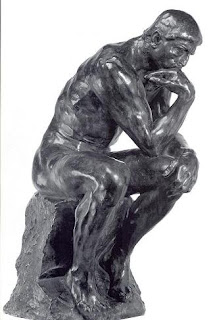Search (verb) 1. to look through carefully in order to find
something missing or lost; to examine carefully in order to find something
concealed; to explore in order to discover --Random
House Dictionary
100,000,000,000: that’s how many searches Google.com users worldwide undertook on a monthly basis in 2012. How did I come by this fact? Well…Google of course. So if you do the math that means on Google.com alone, which controls about 70 percent of the search market, folks around the globe last year searched 1,200,000,000,000 times, 1.2 trillion. That’s a lot of searching. True—most of the time those searches were neither earth shattering nor life altering.
The search was for the trivial when you were out with friends and wanted to know who played the captain on the TV show “McHale’s Navy”: Joe Flynn, aka Captain Binghamton. On Thanksgiving: how long it takes to cook a 25 pound turkey: six and a half hours at 325 degrees. In the car: how far it is from Boston to Albany: 168.77 miles. Maybe even at church: what books begin and end the Bible? Genesis and Revelation.
Did we search this much, seek answers to our questions so obsessively and so frequently before Google? Probably not. Back then a search would have meant a trip to the library and maybe a perusal through “The Reader’s Guide to Periodical Literature”. (I know you’ve probably never heard of that book. You’ll have to google it.)
I’d like to report the five most popular Google searches in 2012 were profound but mostly they weren’t. In reverse order, or as one website proclaimed “What the World Searched For!”: Diablo 3 (video game), iPad3 (computer), Hurricane Sandy (natural disaster), Gangnam Style (a song) and, the number 1, most searched for, most sought after area of curiosity? Whitney Houston, a pop singer who died of a drug and alcohol overdose.
I’m not sure what that says about our world and what we are ultimately searching for. Perhaps this. Google is really, really good at providing answers to certain, clear, and precise inquiries--who, what, where, how—but it is not so great on “Why?”. If you type “why?” into Google you’ll receive 3,100,000,000 “answers” in .28 seconds, the first result being a link for a website about a California hip hop and indie rock band.
No. “Why?” is the hardest question of all in the human search for meaning. It can’t be googled or quickly looked up any where or answered in a single keystroke. “Why?” is the province of the human heart and soul. “Why?” is what we ask God or the Universe when we lie in bed at 3 am and ponder our lives or this messy, broken world. In 2012 “Why?” was what we most heartbreakingly asked when we heard the news…about Newtown… Aurora, Colorado…the shooting of a little girl in Pakistan by the Taliban…the thousands who lost everything in Superstorm Sandy…the chronic inability of our leaders to lead and govern. “Why?”
So if I had but one prayer to offer for all humanity as we enter 2013 and say goodbye to what was in many ways a hard year for God’s Creation, it would be this. May we all continue to have the courage to continue to ask “Why?” even as we confess answers may not come. For when we ask “Why?” we seek a better, deeper life in a way: with more knowledge, wisdom, meaning, and truth. We go beyond Google to God. We dig into our faith traditions or seek out new ones and gather in community, because asking “Why” together is always better than asking “Why?” alone.
Most important: we keep on searching and keep on asking the greatest question of all: “Why?” As the author Richard Bach wrote in his book “Illusions”, “Here is a test to find out if your mission on this earth is finished. If you’re alive it isn’t.”
See you in the New Year.












